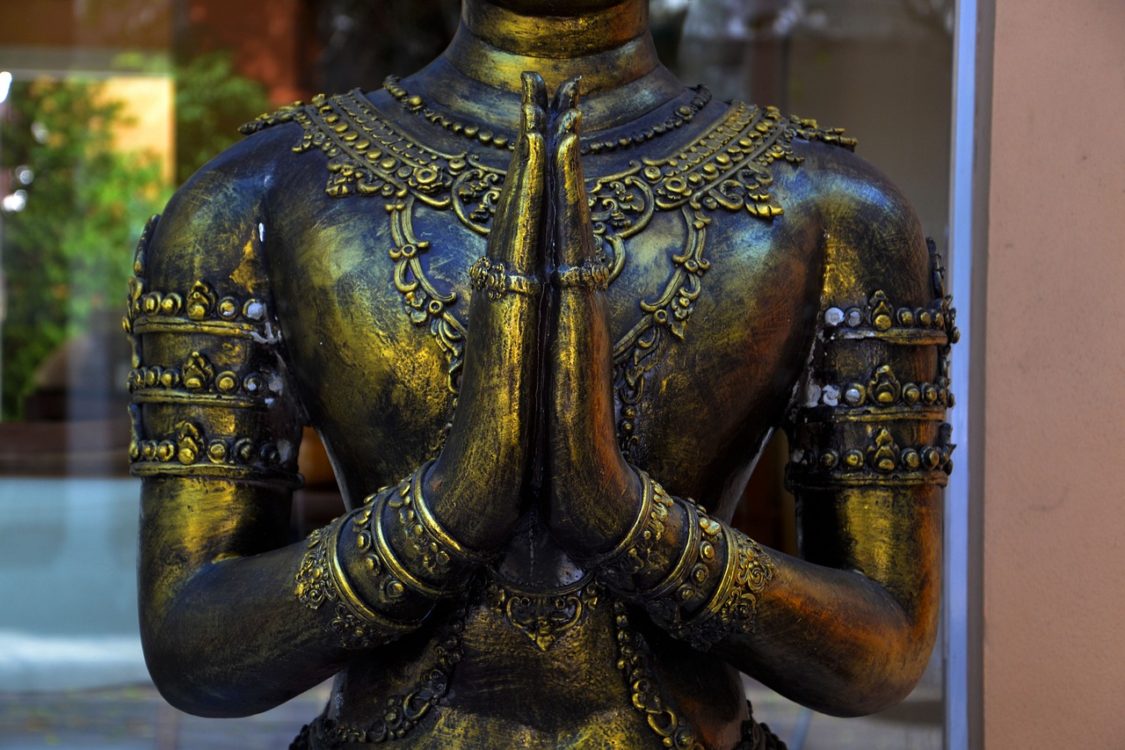What Does Greng Jai Mean in Thailand?

Previously we have talked about the Thai personality and the importance of saving face in Thailand. A character trait related to saving face is “greng jai” (เกรงใจ), which literally means to have a heart that is in awe or afraid (in an intimidated kind of way). A Thai person will ordinarily only feel “greng jai” toward a person someone who is of higher or equal status in their workplace or social circle, even if that elevated status is only in their own mind and how they perceive the person. From a young age, they will also feel “greng jai” toward people in authority positions, such as teachers, police, parents, etc.
Greng jai (also spelled kreng jai) often is roughly translated to mean being highly considerate of another person’s feelings, situation, responsibilities, etc. But you should keep in mind the literal “heart” meaning, too, in order to get a more complete understanding of this aspect of a Thai person’s mindset. When a Thai coworker or friend says that they feel “greng jai” toward you, it can signal four different things, sometimes all at once:
1) It can show their respect for you, especially if you are their elder.
2) It can signal that they don’t feel good that you are doing something for them (because they think they are inconveniencing you).
3) It can reveal that they don’t want you to see them in a negative light (because they are asking help with something they maybe should be able to handle on their own).
4) It can demonstrate fear that you will be unsatisfied (and thus cause them not do something or tell you something).

Negative Aspects of Greng Jai?
These all seem good considerations, right? Well, as with saving face in Thailand, many foreigners claim that there is a dark side to the Thai virtue of being “greng jai” (kreng jai). They say that it hinders progress and encourages workplace inefficiency, citing personal anecdotes to support this belief.
However, in our 20+ years living and working in Thailand (in both the Bangkok corporate world and upcountry higher education), we haven’t had a single bad experience with a “greng jai” Thai co-worker or associate, which leads us to believe that such experiences are usually due not so much to the Thai person being “greng jai” but rather the foreigner being a Westerner (aka a farang) who has yet to assimilate fully into Thai culture.
The fact is that most expat professionals in Thailand rarely ever understand the mindset and culture of Thai people, no matter how fluent they become in Thai. These expats usually work in Bangkok, Chiang Mai, or Pattaya, often with highly-educated Thais who have studied abroad, and they socialize mostly with other Westerners.
Such expats never become fully immersed in Thai culture, and the Thai way of life, compared to an expat who, let’s say, has lived in a rural Thai village for over a decade, and socializes with Thais almost exclusively, rather than other expats. Because of the isolated bubble they live in, these expats retain many Western habits that are uncomfortable to Thais and can interfere with workplace communication — habits such as being overly serious, showing agitation, frequent frowning, and abusing “Why did you….” questions which often serve no useful purpose except to make the other person feel stupid.
They also tend to confront their Thai co-workers to explain themselves in situations where the foreigner should know they are simply being “greng jai”. Of course, the foreigner doesn’t see it as a confrontation. They believe that they are simply seeking clarity about a situation. However, the Thai person often does see it as a confrontation, one where the foreigner is now causing them to lose face by speaking directly about an issue which they politely had tried to side-step (and which a fellow Thai person would have immediately recognized.)
All of these things combine to ironically cause Thais to be even more “greng jai” around “the farang,” when the expat wishes they were less “greng jai”. It also can cause resentment, which is the real cause of the communication problems that most Westerners face in Thailand.

Greng Jai, Thai Friends & Asking for Favors
Even though Westerners are familiar with what it means to be considerate and not inconvenience someone, they still have a hard time fully understanding how THEY should be “greng jai” with Thais, especially when the situation involves friends. They tend to think that asking a friend for a favor isn’t putting them out because that is what friends do, and there is an unspoken quid pro quo that the favor will be returned in some manner. However, this is not the way that many Thais feel about friendships and favors.
Thai friendships commonly (but not always) hold a lower position on the relationship scale than do friendships among Westerners — especially when compared to Thai family and extended family relationships. In addition, favors are supposed to be granted without any expectation that the favor will be returned one day. Thus there is no silent quid pro quo.
The asking of favors (like so many thing in Thailand) also can involve the issue of losing face. For example, if you were to ask a Thai colleague for a favor, they know that the nice thing to do would be to grant it. If they say no to your request, they therefore will lose face because they aren’t being nice. So, they may end up lying and making up an excuse for why they can’t help you. Or they may begrudgingly say yes to your favor, all the time wondering why you are not more “greng jai”.
A good general rule of thumb is never to ask a co-worker or friend in Thailand for a favor unless it is absolutely necessary. If it is a necessity, then it’s best to explain your predicament to your Thai friend and see if they offer to help you first; then the favor becomes their idea and you can gladly accept their generosity.
What this means in practical terms is (for example), don’t ask a Thai colleague for a ride to work if your car has broken down and you can easily take a taxi instead. Don’t ask to stay at a Thai friend’s home if you are in town for a visit and can simply rent a hotel room instead, etc.
Lastly, if you see that a Thai friend of yours is shy about asking YOU for a favor, you can make them happy by telling them they don’t have to be “greng jai” around you, because you are such good friends.
- Affirmations in Buddhism & Thailand - June 7, 2025
- Speak Thai Naturally Without the Gymnastics - April 20, 2025
- The Best Learn Thai Podcast and YouTube Channel - April 10, 2025




